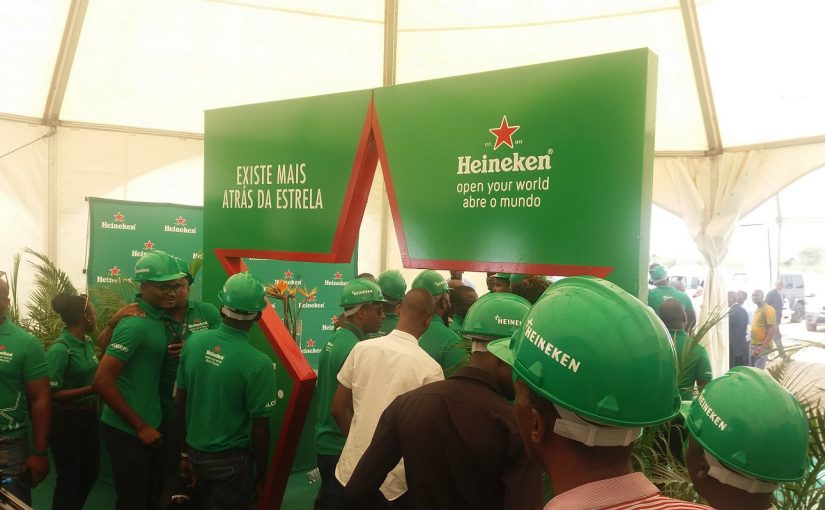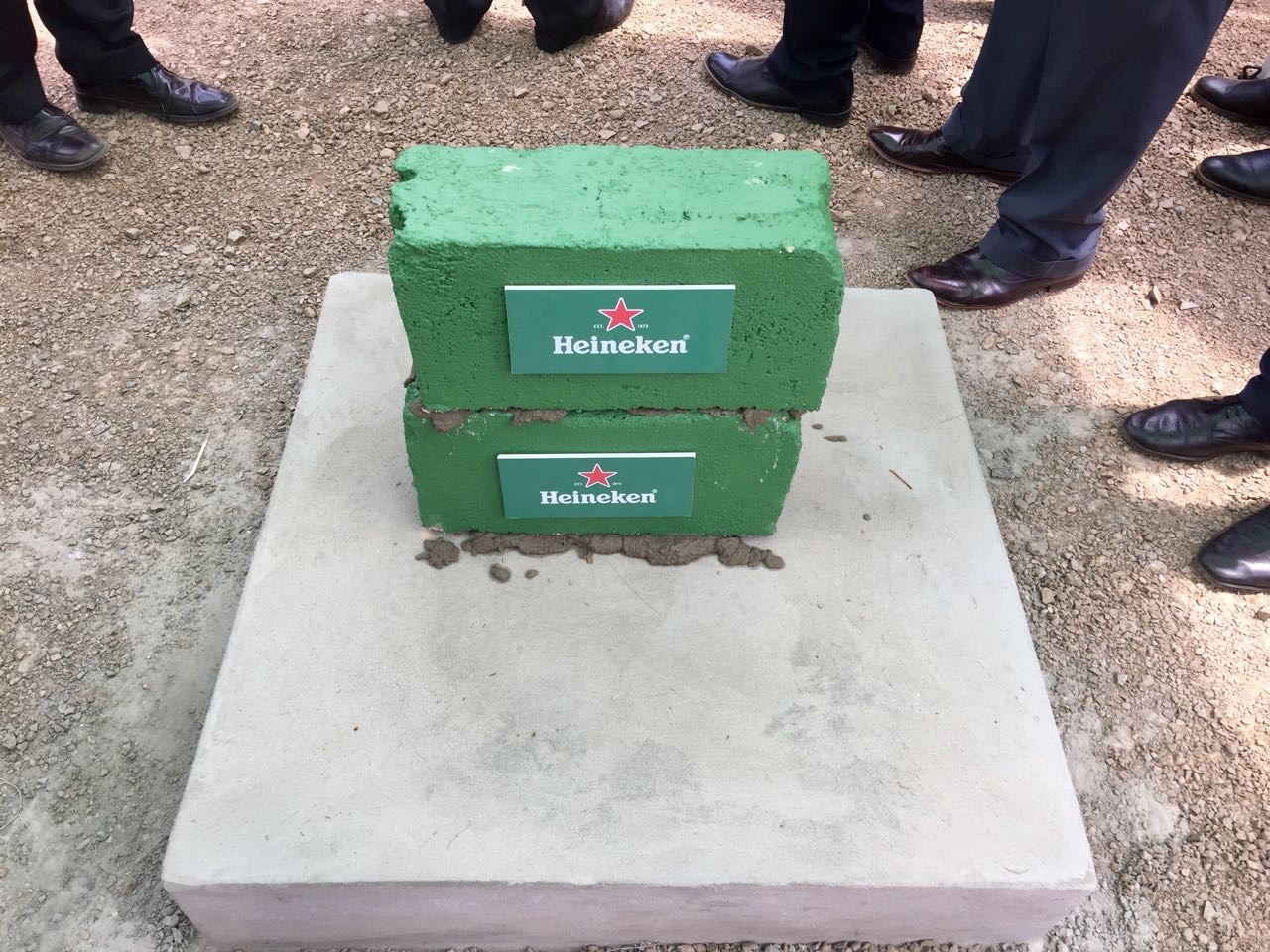Mozambique, Angola to set up business ties with banking, real estate in the spotlight
New brewery may create thousands of jobs

Picture: Club of Mozambique
The construction of a brewery by the Dutch company Heineken in Marracuene district, about 40 kilometres north of Maputo, will create 200 jobs directly and about 13,000 indirectly, during the construction and operational phases, claimed the Minister of Industry and Trade, Max Tonela, on Monday.
Speaking at the ceremony at which he laid the first stone for the new brewery, Tonela said construction would take about 18 months, and in the second half of 2019 the first beer from this factory will hit the Mozambican market. Construction of the brewery is costed at 100 million US dollars.
Tonela claimed that the Heineken factory would substitute imports, thus helping save foreign exchange and improve the trade balance. This claim is extraordinary, since beer is one product in which Mozambique is already effectively self-sufficient.
The Mozambican market for beer is currently dominated by a Mozambican company, Cervejas de Mocambique (CDM – Beers of Mozambique), which operates three breweries, in Maputo, Beira and Nampula.
CDM does not only brew traditional malt beers, but is also making beer from Mozambican raw materials – cassava and maize – in the Nampula brewery.
Not much beer is imported, legally or illegally. The contraband in alcoholic drinks consists overwhelmingly of wines and spirits.
Heineken is thus not taking any market share away from smugglers. Instead, it is muscling in on CDM’s market, threatening to replace the distinctive Mozambican beers (such as 2M, Laurentina and Impala) with Dutch lagers such as Amstel.
For the first three years of operation, Heineken will also benefit from generous tax breaks. Currently, breweries pay the Specific Consumption Tax levied on luxuries and superfluous goods at the rate of 40 per cent. But under an amendment to the tax legislation approved last month by the country’s parliament, the Assembly of the Republic, the ICE rate charged for new breweries will be 20 per cent in the first year, 25 per cent in the second year and 30 per cent in the third.

Despite these tax breaks, Tonela claimed “the implantation of this project in Mozambique will also contribute to broadening the tax base and to the consolidation of initiatives to promote the value chain”.
He added that the new brewery also fits into the government’s industrialisation strategy with a view to the structural transformation of the economy and its insertion into the world market. Tonela also believes that Heineken, like CDM, will use local raw materials such as maize and cassava in its brewing, thus guaranteeing added value to Mozambican products.
Also Read: Heineken lays foundation stone for brewery in Marracuene, Mozambique
The Heineken managing director for east and west Africa, Boudewijn Haarsma, told AIM that initially the brewery will produce 800,000 hectolitres of beer a year, and that its installed capacity will be 3.5 million hectolitres.
He claimed that the brewery will stimulate the national market and increase competition. Mozambican consumers “will have the opportunity to make new choices”, he said.
He said that by 2020 Heineken, in its African operations, hopes to raise the amount of local raw materials in its product from the current level of 50 per cent to 60 per cent. Haarsma believed this would improve the quality of the beer and lower its price.













Leave a Reply
Be the First to Comment!
You must be logged in to post a comment.
You must be logged in to post a comment.